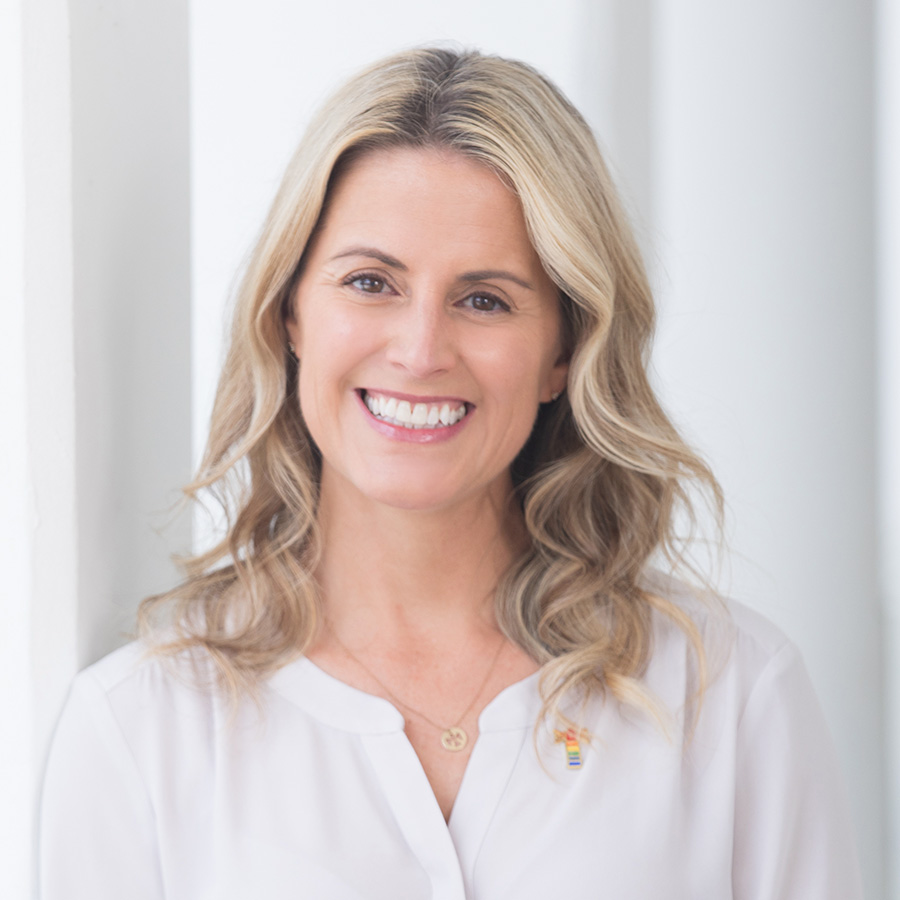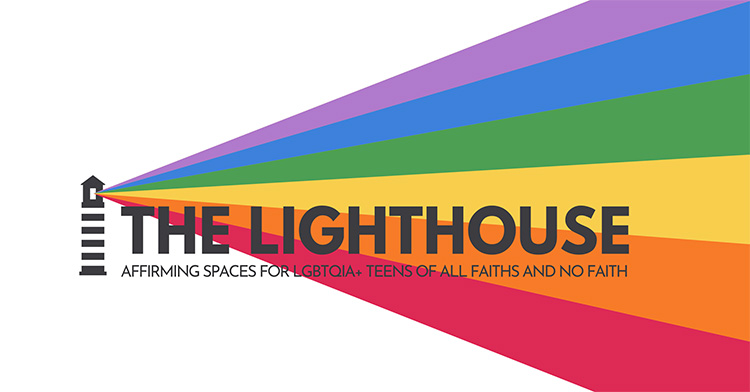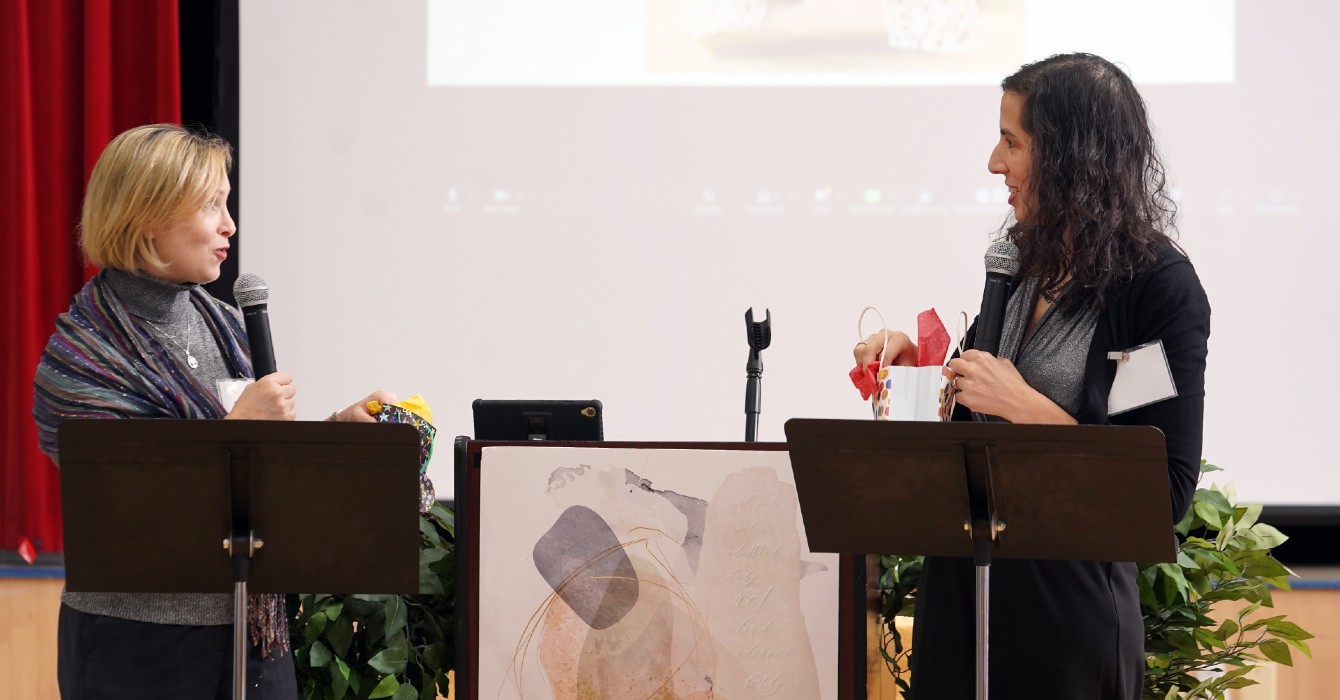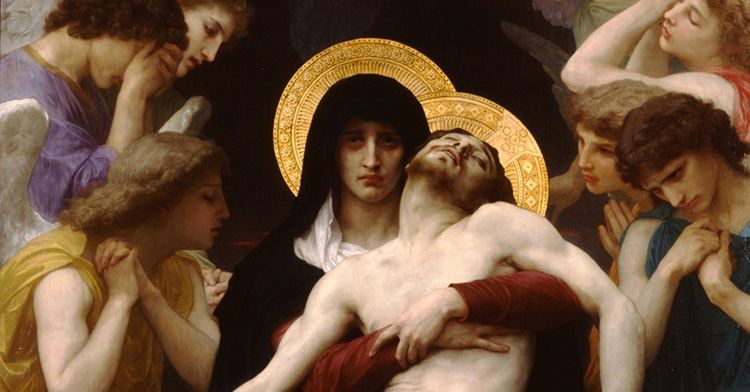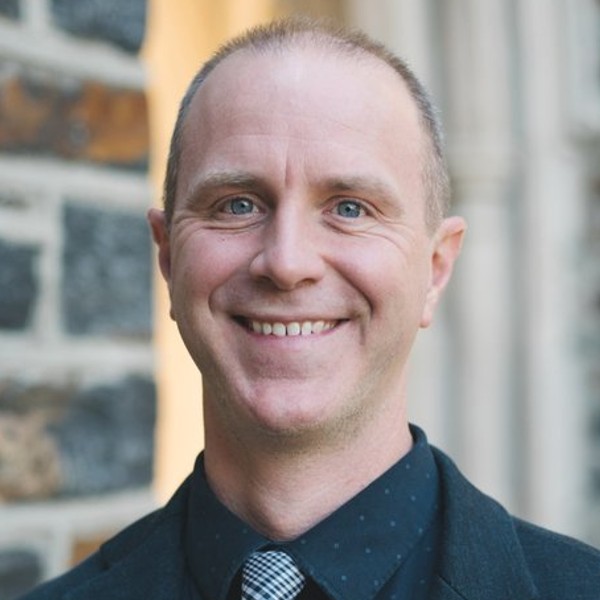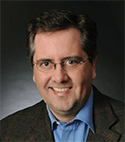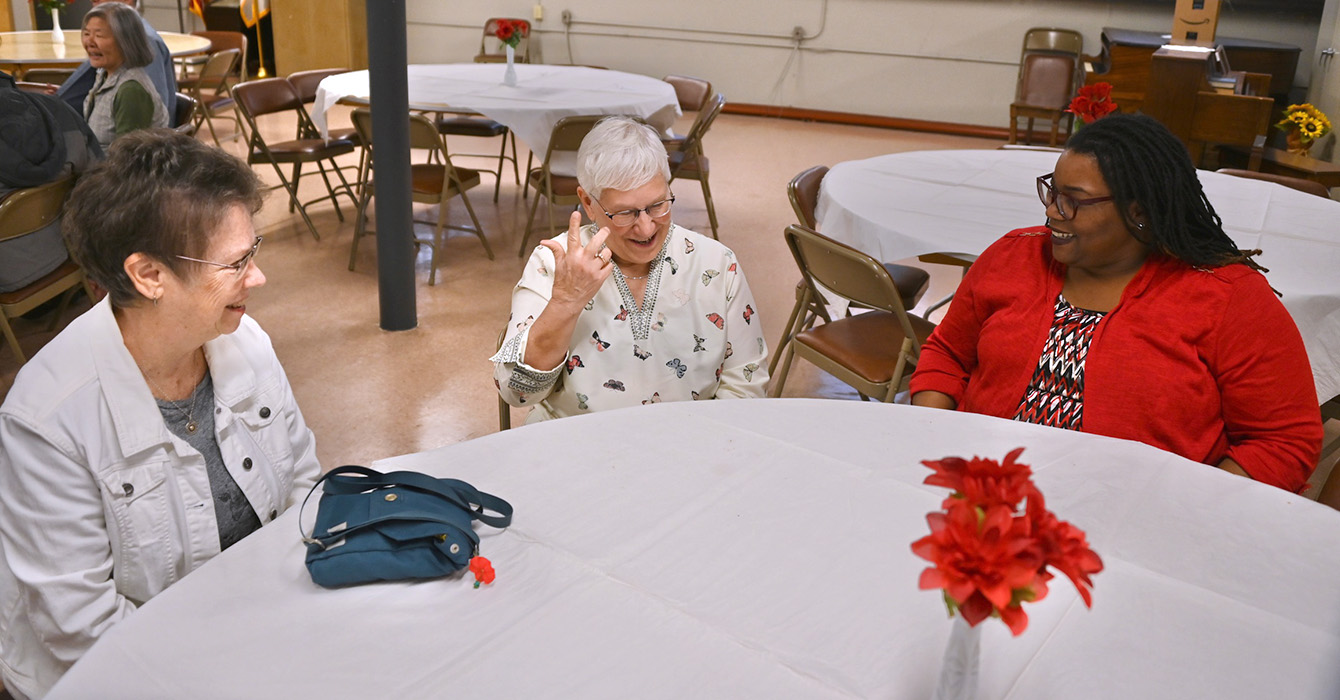In order to understand Iskali, it’s important to know the story of Juan Diego and Our Lady of Guadalupe.
In 1531, Our Lady of Guadalupe appeared to Juan Diego, an Indigenous peasant, on Tepeyac, a hill in what is now Mexico City. She asked him to build a shrine there in her honor, so she could "share her love and compassion with all those who believe."
Juan Diego went to the archbishop with this extraordinary request. However, the archbishop wanted proof of the vision’s authenticity. Juan Diego went back to Our Lady -- more than once -- and eventually begged her to send someone else, because he judged himself a “nobody,” unlikely ever to be heard.
But Our Lady of Guadalupe was insistent: “It must be you.”
“Here at Iskali, we also hear that call,” said Iskali executive director and founder Vicente Del Real, who started the mentorship and faith formation nonprofit for young Latino Catholic adults in 2010.
Located just outside Chicago in Maywood, Illinois, Iskali has helped about 2,000 young adults deepen their faith and grow as leaders. Iskali offers community, faith and leadership formation, sports outreach, scholarships, and a bilingual podcast, among other ministries.
Their mission is critical, Del Real says, because this generation is crucial to the future of the Catholic Church in the U.S. More than half of Catholic young adults in the United States are Latino, but retaining those believers is a challenge for the church.
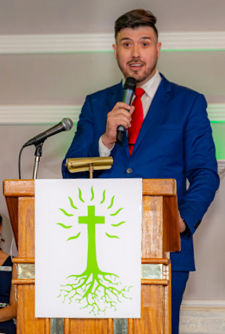
Del Real was only 19 when he noticed that the programs within his parish were geared toward immigrants and not necessarily their first-generation children. The younger generation went to Mass with their Spanish-speaking parents, but their first language was English, he said.
He wanted to try something different to reach Latino young adults. The mission was in part to keep the younger generation involved in the church -- but also to empower and equip them to be transformative leaders in the church and society, Del Real said.
As you consider the young people in your congregation, what might need to change for church to better “speak” to them?
He felt a call to take on this challenge by founding Iskali, a word meaning growth and new beginning in Juan Diego’s native Nahuatl language, in which the Virgin spoke to him.
As Our Lady of Guadalupe spoke to Diego in a language he understood, so Del Real hopes that Iskali can present the gospel to young adults in the American context in language that they understand -- and that allows them to grow in Christ, guided by the Holy Spirit.
“There is just a huge need,” Del Real said. “Leadership means taking initiative. A true leader is the one that sees the problem and says, ‘How is God calling me to be part of the solution?’”
The ‘common priesthood’
Del Real was 15 when his family immigrated to the United States from Zacatecas, Mexico. They found a home in their parish, and Del Real became involved in a youth group.
That’s when he noticed that most of the people in the confirmation program were U.S.-born, he said, “and we had nothing for them after confirmation.”
Del Real saw that it was not that young people didn’t care about their faith or lacked devotion. Rather, they felt that their desire to be part of a bigger picture and give their lives to productive causes was not being met within the church. One deep need was a sense of community.
Iskali is an example of the “common priesthood,” meaning the responsibility of lay Catholics to take up the mission of the church in their own lives, said John Cavadini, a professor of theology at the University of Notre Dame and the director of the McGrath Institute for Church Life.
“If you don’t care if people understand the Mass, if you don’t care that there isn’t any leadership raised up among people, then you deserve everything you get,” he said of the need for the church to invest in young people, particularly Latinos.
“But when someone can show us how to care [as Iskali is doing], it’s an important thing,” he said.
Timothy Matovina, Iskali’s board chair, said the “evangelical zeal” of the organization and its emphasis on the personal encounter with Christ has been a deep influence -- on him as well as on the young people.
“It just soaks into you. It has been a tremendous gift to me,” said Matovina, who is a professor at Notre Dame and an expert on U.S. Latino Catholicism. “I’m renewed.”
Embracing the challenge
Iskali started by offering retreats to create and foster young leaders in the faith. They’re run by young people who “jump in to be a part of our support and discipleship communities,” Del Real said.
Like many retreats, Iskali’s focus on getting young people outside their daily routines to help them deepen their faith. About 60 participants wearing bright-green Iskali T-shirts engage in activities such as skits and guided reflections.
What factors create an environment where young people desire to bring forth their gifts in leadership?
Matovina said that the retreats are especially effective in reaching second-generation Latinos, who often feel they’re living between cultures. When they go to an Iskali retreat and see other young people joyfully worshipping, singing and clapping, it’s a powerful experience, he said.
“They preach, they pray, minister and witness. Above all, [participants] see “Hey, that person looks like me. These people have a joy and presence. I don’t know how they got it, but I want it,’ he said.
“What Iskali does, in a deeply biblical and evangelical way, is take all those young people and teach them the basic reality of what the book of Genesis says, that you are a child of God. You are not ‘here or there’ -- you are both here and there.”
Del Real quickly saw the need to continue the support for the youth after the retreats ended.
As the organization has grown, Iskali’s offerings have expanded to also include lay discipleship communities, an eight-month pastoral and academic faith formation program, and sports outreach, where participants play basketball, volleyball and soccer.
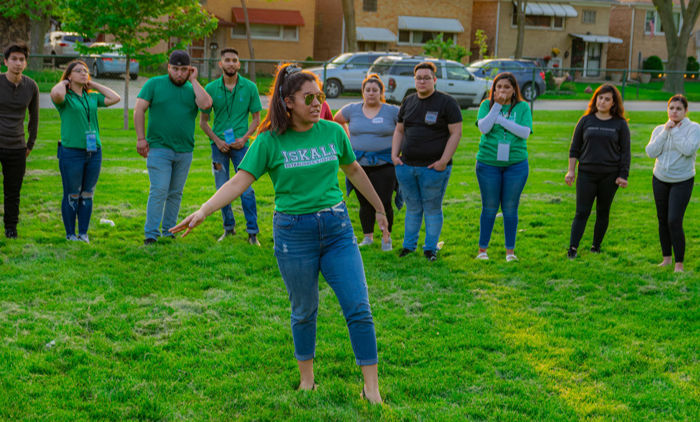
The programming is not officially tied to the church, though the Most Rev. John R. Manz, auxiliary bishop of the Archdiocese of Chicago, sits on the Iskali board and has been a strong supporter, and the Rev. Bobby Krueger, the pastor of St. Leonard Catholic Church in nearby Berwyn, serves as chaplain.
Iskali is funded by private donors and foundations; in 2019, Del Real and Manz together cut the ribbon to open Iskali’s Bishop John R. Manz Center in Maywood. The center includes meeting rooms, a library and a chapel.
Iskali put most events on hold during the pandemic; the first retreat -- for fully vaccinated participants -- took place in May. The center stayed open during the pandemic to provide students a place to study in a safe and socially distant setting.
Twenty-year-old Gorety Nava went on an Iskali retreat in 2018 and eventually became one of the retreat guides. Nava then felt called to go on a journey of personal consecration to Our Lady of Guadalupe, which she began in 2019.
Do you know any Catholics of Mexican background who are devoted to Our Lady of Guadalupe? If so, invite them to share with you how Guadalupe has played a role in their lives. If not, how would you go about making such a connection?
“Last year, we checked in every single day through Zoom. We read a book; it was like a small retreat,” she said. “It’s been great to have friends who walk with you and keep you accountable [on your faith journey]. It has been two years of a lot of growth.”
Beyond experiencing spiritual growth, Nava has gained a community of close friends.
“I’ve created lifelong friendships, and I didn’t realize how important community was until I got here,” she said. “You genuinely need good friendships, and Iskali has offered me that.”
Changing lives
Nineteen-year-old Kate Marquez went on retreat with Iskali her senior year of high school.
“I was terrified when I went to the retreat, and I thought everyone [in my life] was against me,” she said. But Iskali “gave me the idea of who I was supposed to be, who I could be.”
After the retreat, as Marquez continued to struggle with a challenging home life, Del Real and his colleagues sat down with her and discussed the options. They wanted to make sure she was supported beyond the programs, so they created an internship for her, something Iskali had never done before.
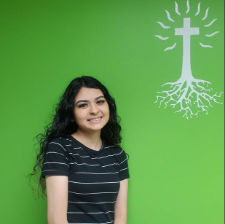
“Kate is our social media intern; she edits the audio and video for our podcast and our social media,” Del Real said. “We wanted to push her to be self-driven, to make her own decisions, to use her own creativity and innovation.”
Marquez comes in every Monday and Wednesday and says the program has been a life changer.
“Coming here every week helps me with my faith,” she said. “I used to wake up really late, but now I don’t. Coming here to work made me become more organized; having people keep track of my work has helped me a lot.
“It’s a place where I can mess up, learn, fail and learn again. Iskali has shaped me on a professional level. I wake up earlier; I try to be here on time. I have goals to achieve,” she said.
One goal is that, in six months’ time, Marquez will be ready to use this experience to find a position as a social media coordinator at a nonprofit or business, Del Real said.
“We recognize the power of faith and community,” he said. “We want to help individuals become the best person they can and help them take charge of their futures and help their communities.”
One of Iskali’s programs centers on mentorships, steeped in spiritual formation, to help college-age Latinos stay in school.
“For many of these Latinos, they don’t know how to navigate the U.S. education system, because they are first-generation. They also often have to support themselves financially. And a lot can happen in the first semester that ultimately encourages them to drop out of school and never go back,” Del Real said.
How can we be attentive to the needs of Latino young adults within and outside our faith communities?
The Iskali mentorship program pairs working professional Latino adults with college-age Latinos.
All mentors foster spiritual growth in their mentees and walk alongside them to serve as both a support system and an inspiration.
Mentors agree to meet with their mentees in person at the Iskali center in Maywood at least five times per year, in addition to meeting with them outside the center on a bimonthly basis.
Nava, a first-generation college student who is looking to go into physical therapy, is mentored by Carla, a professional in the medical field.
“Carla has helped me look into different careers and show me different options I have. She showed me how beneficial it is to go to college,” Nava said.
The pair meets once every five weeks.
“She asks what I need and tells me about her experience. She also has a lot of connections,” Nava said.
Marquez, the Iskali intern, also is getting involved with the mentorship program.
“I feel like in the past few months, everything has shifted in the right direction. Here, God is always here for me. I’m here to be professional and work, but I also have a lot of prayer in me. It’s very peaceful and convenient for me,” she said.
As students have graduated from the program, they have given back by becoming mentors themselves and even, in one former student’s case, providing financial support.
“We saw a lot of the young people that were involved with us leaving college because they were missing one or two hundred dollars,” Del Real said. So one 26-year-old who was involved with Iskali as a teen created a scholarship fund.
“He was the one that said, ‘You know, I’m going to put the first $1,000, because I have a few years behind me. And now I can help.’
“So I just helped create the situation for others to join him,” Del Real said. “It’s beautiful, because he was [with Iskali] for five years.”
Now the scholarship fund awards $1,000 to eligible first-generation Latinos in college. Students applying must write an essay and explain what impact they hope to have on their community by completing a college degree. If awarded the scholarship, students agree to meet with an Iskali mentor within three months of receiving it and to complete 10 hours of community service per academic year.
How can we invite young adults in any tradition to recognize their gifts and support them in their faith?
At the end of the day, Iskali always comes back to its mission of creating and empowering young leaders in their communities as well as in their faith.
“We just want to be a space where they can lead and use their gifts, because they are very talented,” Del Real said. “Iskali is a space where they can share their gifts with society.”
An evolving landscape
Del Real’s experience as a young adult Catholic wasn’t unique to his parish but reflects national trends.
“We’re in a very interesting time in the history of the church,” said Katherine Angulo Valenzuela, the program director for the Thriving in Ministry initiative at Notre Dame, in which Del Real is a participant. “The next 10 years are the most critical years for the Catholic Church in the United States.”
In recent decades, the U.S. Catholic Church has been experiencing a decline in the number of practicing members. According to Pew, Catholicism has seen “a greater net loss due to religious switching than has any other religious tradition in the U.S.”
The Center for Applied Research in the Apostolate (CARA) reports that approximately 30.4 million Catholics in the United States identify as Hispanic or Latino. And about half of those were born in the U.S.
“The majority of Catholic young adults in the United States are Latino,” Valenzuela said. Yet many are second-generation.
The “retention rate” of Latinos raised Catholic in the United States is 71%, which seems high, but that’s a noticeable decline from the 82% retention rate reported in 2006 -- and a great concern for those in the church.
And that’s why Iskali fills an important need.
“So we have reached that milestone of [being in] the majority now,” Valenzuela said. But the decline in retention presents a unique obstacle to those working with young people.
It’s important not just to reach Latinos generally but also to reach different generations -- each of which brings new challenges and new gifts, Valenzuela said.
And at Iskali, everyone can play a part in nurturing those gifts.
How is Iskali continuing to keep alive the spirit of Guadalupe in Chicago today?
“‘It must be you,’” Del Real said, recalling the story of Juan Diego.
“Yes; ‘it must be you.’ We hear that, and we must do something for the future of our church and young Latinos. They are the future.”
Questions to consider
Questions to consider
- Vicente Del Real recognized that second-generation Latino Catholics craved something different from what attracted their parents. As you consider the young people in your congregation, what might need to change for church to better “speak” to them?
- How can we invite young adults in any tradition to recognize their gifts and support them in their faith? What factors create an environment where young people desire to bring forth their gifts in leadership?
- Do you know any Catholics of Mexican background who are devoted to Our Lady of Guadalupe? If so, invite them to share with you how Guadalupe has played a role in their lives and in the life of their community. If not, how would you go about making such a connection?
- Del Real and the young adult leaders of Iskali are role models, as young adult Christian leaders grounded in their faith and culture and inviting others into Christian community. How can we be attentive to the needs of Latino young adults within and outside our faith communities?
- Our Lady of Guadalupe is a powerful inspiration for Del Real. She recognized the dignity and potential in Juan Diego and equipped him for a mission that has continued to demonstrate God’s love to many in the world. How is Iskali continuing to keep alive this spirit in Chicago today?





